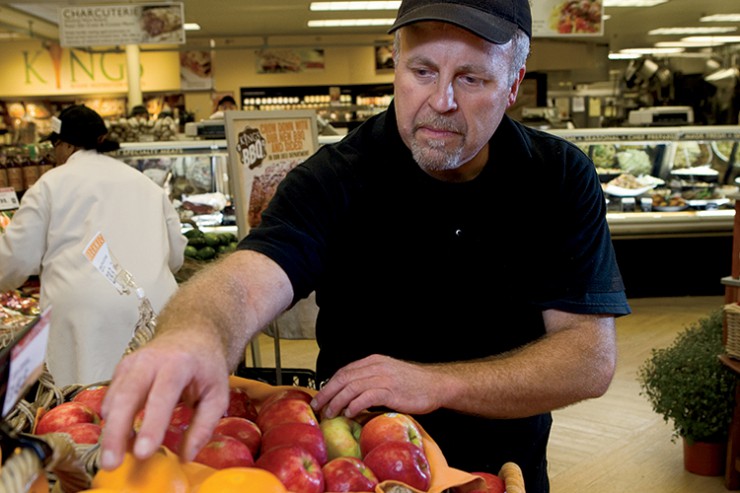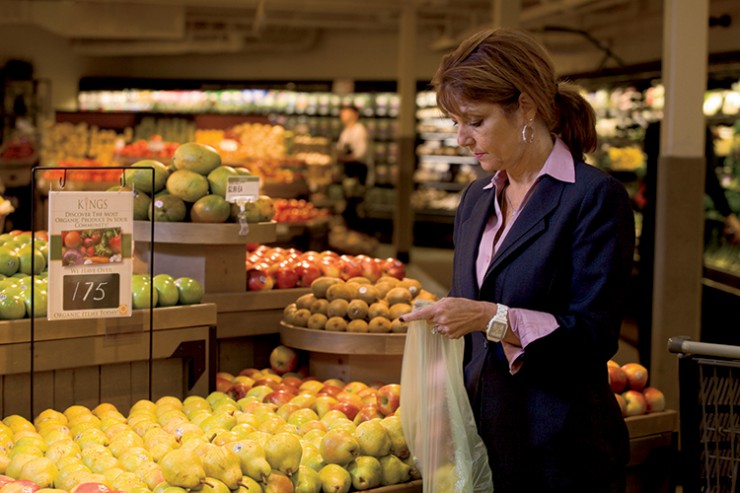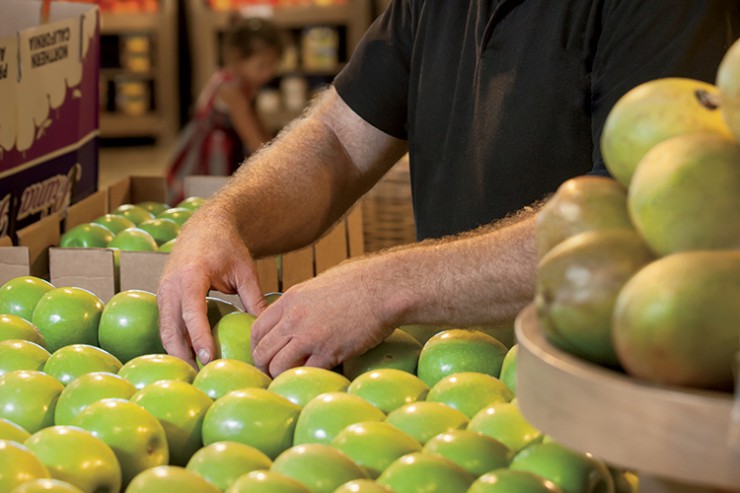Home > New Jersey > New Jersey Farm to Table > New Jersey Supermarkets with Fresh Ideas
New Jersey Supermarkets with Fresh Ideas

Walking through the produce section of a Kings Food Market is more like a visit to a farmers market or roadside stand than a trip to the grocer. That’s because the New Jersey-based retailer stocks its 24 stores with locally grown fruits, vegetables and herbs, even promising to deliver fresh products – from field to store – in a mere 24 hours.
Greens to Envy
Kings’ 24 Hour Just Picked Promise reiterates the company’s mission to provide customers with the freshest, highest-quality foods. The fact that many of those products originate on New Jersey farms is a bonus.
“Kings is a local company. We’re born and raised in New Jersey, so it’s really in our roots to be a purveyor of local products,” says Paul Kneeland, vice president of produce/floral/seafood/meat. “That’s first and foremost. We’re serving our neighbors with neighbors’ food.”
Linda Doherty, president of the New Jersey Food Council, says purchasing from local producers benefits retailers, including Wegmans Food Markets, Wakefern Food Corporation – which operates under the ShopRite moniker in New Jersey – and family-owned Nicholas Markets.
With stores in Cedar Grove and North Haledon, Nicholas Markets claims to have the largest selection of locally grown produce in the area.

Direct Path From Field To Fork
“There are several benefits to purchasing local,” Doherty says. “Food retailers can interact directly with the local grower. They can discuss produce, and provide clarity and expectation to the local grower. Also, it means the product is fresh as it could be. It’s picked that morning and on the supermarket shelf for the consumer to enjoy that afternoon.”
Doherty says freshness is just one of the many rewards for consumers. She says sourcing locally benefits the community, the local environment and the economy.
“The benefit to consumers is we can get [produce] to them quicker. It’s not sitting in a truck for three days traveling cross country, so it’s fresher. Freshness is the most important benefit,” Kneeland says. “But not only that – we’re not using a lot of fuel to get products from the fields to the store, so there’s an environmental benefit.”
Planting Knowledge
Kings is also doing its part to educate consumers about the state’s agriculture industry. Visitors to the company’s website can learn which fruits and vegetables are in season and discover delicious new recipes using fresh Garden State ingredients.
In stores, placards display info graphics detailing the supply chain of products, and profiles of the farmers who grew them.

“Consumers are more likely to support their local farmer and have a sense of loyalty if they know who they are and where the food was produced. It makes consumers feel good about their purchase, and making the customer happy is the ultimate goal of the food retailer,” Doherty says.
The symbiotic relationship between the company and growers also benefits the economy.
“Buying from local businesses keeps the money in the state,” Kneeland says. “It keeps the economy growing. It keeps people employed. With the growing desire by consumers to buy local, the money continues to flow and get reinvested into growers, farms, and processes and equipment, and that just makes everybody better.”
Doherty agrees.
“Buying local keeps the consumer dollar in the community,” she says. “Also, a major supermarket provides a wider selling platform for growers who, in turn, can reach more consumers. Greater access to the customer leads to more economic opportunity for the grower.”



